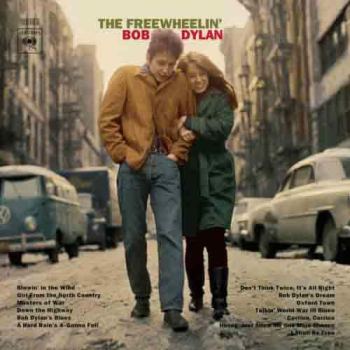
TIME may have underestimated Bob Dylan in 1963, but at least we singled out “Blowin’ in the Wind” as “an anthem for the whole lost crowd he speaks for.” The classic was released on his second album, The Freewheelin’ Bob Dylan, which came out a year before the passage of the Civil Rights Act. The folksinger-songwriter was just 21 when he asked, “How many roads must a man walk down/ Before you call him a man?” With “Blowin’ in the Wind” and countless other songs, Dylan made people look both inward and at the discordant world around them. His voice signaled that of a new generation, one ready to confront the injustices of the time and unwilling to settle for war or indifference. Joan Baez and Peter, Paul & Mary are among the artists who recorded his songs, and the ’60s just wouldn’t have been the ’60s without his poetic meditations on peace and freedom. Yet, as Dylan often did when he felt too easily pegged, he soon abandoned the folk-protest movement. His now legendary electric performance at 1965’s Newport Folk Festival was considered a betrayal by his former compatriots.
[youtube=http://www.youtube.com/v/ad_5G7kbbqw]

